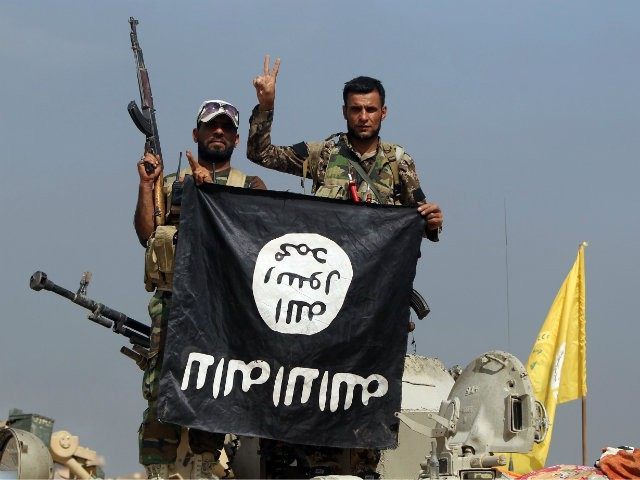The San Bernardino terrorists, Syed Rizwan Farook and his wife Tashfeen Malik, funded their killing spree with a debt consolidation loan, raising questions about whether terrorists might use popular consumer loans to fund their activities.
The so-called Islamic State, or ISIS/ISIL, raised over $100 million last year on social media to fund its so-called caliphate by making fraudulent loan applications; selling antiques and artifacts; collecting ransoms; and soliciting charitable donations.
Although the terrorist couple and their baby supported themselves on Syed Farook’s $52,000 a year salary as a county health inspector, they were able to acquire thousands of dollars’ worth of weapons and build a bomb-making factory in their garage that cost at least $15,000.
Bomb-making components found at the Farook residence included pipe fitting equipment, smokeless powder, remote control transmitter, and the type of Christmas tree light set up that the on-line al Qaeda magazine “Inspire” recommended to the Tsarnaev brothers as an ignition systems for their pressure cooker bomb attack on the 2013 Boston Marathon, according to NBC News.
It has just been confirmed by NBC News that a $28,500 deposit was made from WebBank.com into a bank account belonging to Farook on November 18, just two weeks before the attack.
WebBank.com was funded from the online peer-to-peer Prosper Marketplace, which is known for providing sub-prime loans to individuals for debt consolidation for a fee of 5 percent and an interest rate cost of up to 31 percent. Bank regulation and reporting requirements for online lenders are substantially less than deposit-taking branch banks.
When contacted by NBC regarding the loan to Farook, Prosper Marketplace stated that the company “is prohibited by law from disclosing any non-public, personally identifiable information regarding any loan originated through our platform.” Prosper added, “[a]ll loans originated through the Prosper platform are subject to all identity verification and screening procedures required by law, including US anti-terrorism and anti-money laundering laws.”
Fox News’ Catherine Herridge has reported that Farook converted $10,000 to cash in the days before the attack; that he transferred some amount to his mother’s account before leaving his six-month-old child with her; and that the loan would have to have been made on or around Nov. 13, the date of the Paris terror attack.
Breitbart News also noted that Malik came to the United States on a 90-day fiancé visa. In the past, applicants for fiancé visas were required to visit a U.S. embassy in their country to be photographed and fingerprinted in person. But the Obama administration used a high-tech vendor to streamline fiancé visas so they could be completed online for $375 fee.
According to family members in Pakistan, Malik became more religious during college and “She used to talk to somebody in Arabic at night on the Internet.” Once Malik arrived in the U.S. with Farook in July 2014, she began posting extremist messages on Facebook.
All of Farook and Malik’s actions follow the classic playbook used by the Islamic State to pull-off spectacular terrorist attacks.

COMMENTS
Please let us know if you're having issues with commenting.